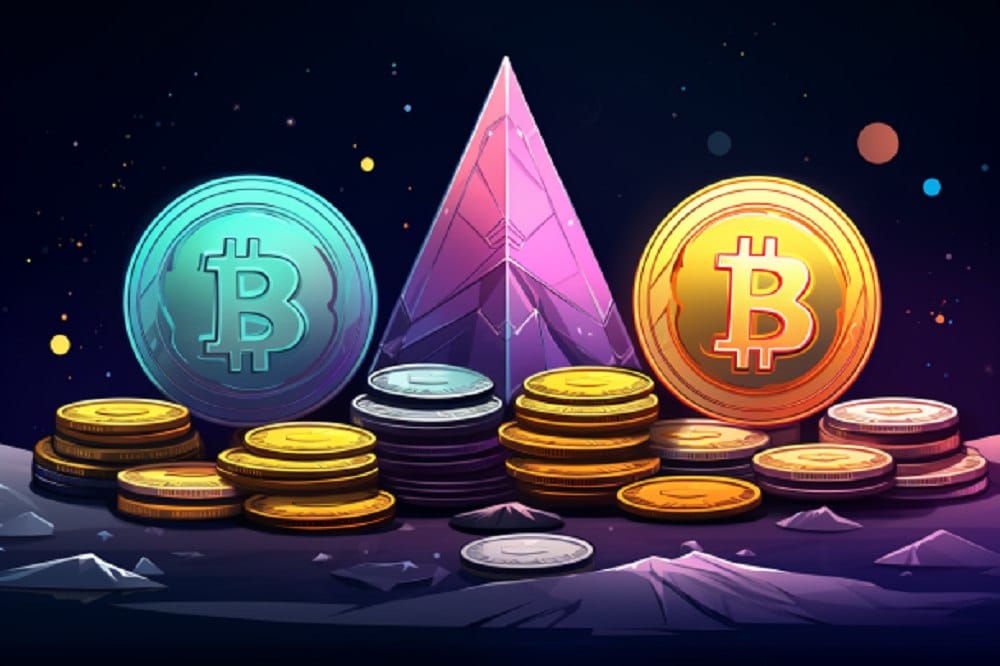The terms “coin” and “token” are commonly used in the cryptocurrency space, sometimes interchangeably. However, they are two distinct terms that are simply misused most times. While both of them are cryptocurrencies, there are fundamental differences between the two that you need to know.
In this guide, we describe the differences between crypto coins and crypto tokens. If you don’t know the difference, you have come to the right place. By the time you finish reading this guide, you’ll be able to distinguish between the two, and even teach others how to do the same.
So what is a Coin?
In its most basic form, a crypto coin is a cryptocurrency that has its own blockchain. A typical example is Bitcoin, the first ever cryptocurrency. It has its own block and network known as the Bitcoin blockchain and network. Unless properly modified, Bitcoin can only run on the Bitcoin blockchain and no other.
Other examples of coins are Litecoin and Bitcoin Cash. Any digital asset that has its own blockchain is a coin. Another thing about coins is that they are designed to be used as a means of exchange.
For example, Bitcoin was created to be peer-to-peer digital cash – something you can use as a currency to pay for goods and services. You can also buy a coin and expect the price to go up eventually as demand for it increases. This is why bitcoin is becoming increasingly popular among investors.
Coins are also more stable than tokens, so they can be used as a store of value. They also have more value because they usually have a limited supply like Bitcoin, while tokens do not have a cap. It will continue to come into circulation as long as there’s demand for it.
What is a Token?
A token is also a digital asset because it runs on a blockchain, but it does not have its own blockchain. For example, when you hear of ERC-20 tokens, it means tokens that run on the Ethereum blockchain. Take them off Ethereum and they are useless, meanwhile their name is not Ethereum.
The Ethereum blockchain hosts a large percentage of all tokens because it was the first blockchain designed to support decentralized applications (dapps) and smart contracts. Ether is the token used to power the Ethereum blockchain, and is used to pay for transactions with other tokens.
Examples of tokens are stablecoins built on Ethereum, such as Tether USDT, USDC and others which run on Ethereum blockchain. They can be used to represent something of value such as a currency or a property.
A typical example is USDT which is like the digital version of the USD because it is pegged to it. Non-fungible tokens (NFTs) are an example of tokens that represent properties, because they can be used to represent items such as pieces of art, music, or even a video. The use of NFTs is even extending to real estate, in a phenomenon called tokenization.
This is a scenario where the physical property is represented by a token, and it is becoming a widely accepted concept. You can own a land or other landed properties right on the blockchain where it can be verified that you are the true owner of the land, in case of a dispute.
Interestingly, coins can also be tokenized now. This means coins like bitcoin can be modified to run on other blockchains in the form of tokens. This is how you have wrapped bitcoin, the tokenized form of bitcoin, which runs on the Ethereum blockchain.
Conclusion
Coins are very distinct from tokens, since they have their own blockchains. They are also meant to be used as medium of exchange for buying and selling, while tokens are created to serve specific purposes and run on a general blockchain that other tokens run on. Now you know the differences between these two classes of digital assets.
At Tokenhell, we help over 5,000 crypto companies amplify their content reach—and you can join them! For inquiries, reach out to us at info@tokenhell.com. Please remember, cryptocurrencies are highly volatile assets. Always conduct thorough research before making any investment decisions. Some content on this website, including posts under Crypto Cable, Sponsored Articles, and Press Releases, is provided by guest contributors or paid sponsors. The views expressed in these posts do not necessarily represent the opinions of Tokenhell. We are not responsible for the accuracy, quality, or reliability of any third-party content, advertisements, products, or banners featured on this site. For more details, please review our full terms and conditions / disclaimer.



